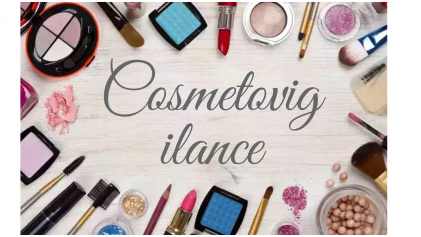Cosmetovigilance is a new concept of safety monitoring of cosmetic products which refers to the post marketing surveillance of any health related undesirable effects possibly due to the use of cosmetic products. The purpose of Cosmetovigilance is to collect, analyze and assess the adverse reactions occurring in consumers to identify any potential health risks, thus guaranteeing a further strengthened safety for consumers. Cosmetovigilance also allows to control or rule out potentially hazardous ingredients that may be present in cosmetic products
The term was first used in literature by Vigan (1997) to refer to post-market surveillance carried out by industry. Cosmetovigilance was initiated by the French health products safety agency as a part of pharmacovigilance system for cosmetics. Today, it is recognized globally as a concept of public health to address the safety of cosmetic products.
Prior to July 2013, the safety of cosmetic products was not reviewed or approved by national regulatory authorities. Since then, new legislation has compelled the cosmetics industry to provide data on products and ingredients before they can be marketed, however, the efficacy and safety of cosmetic products are not reviewed or approved by national authorities before they are sold to the public. Cosmetics companies must also collect reports of undesirable effects and adverse reactions after their products have reached the market.
As per regulators, a cosmetic product put on the market must not cause damage to the human health when applied under normal or reasonably foreseeable condition of use taking into account in particular of the product presentation, its labeling, instruction for its use and disposal warning statements as well as any other information provided by the manufacturer or his authorized agent or by any other person responsible for placing the product on the market.
What is the importance of cosmetovigilance?
Cosmetovigilance is especially important because the safety and clinical trial testing of cosmetic products are under less scrutiny by regulators than other products such as drugs, natural health products and medical devices. This makes monitoring and reporting observed adverse effects important. There are no forms of pre-market approvals for cosmetic products in the United States or Canada (with the exception of batch certification of certain colour additives in the US), allowing these products to be easily introduced to market. The effectiveness and safety of cosmetics are entirely left to the discretion of the manufacturer, which may include testing, but it is not a requirement. As such, proper incident reporting post-market is of the highest importance. With a proper system in place problems can be identified early and changes made, limiting the size of the population affected.
What effects can proper Cosmetovigilance have on industry?
Keeping track of adverse effects from cosmetics is what can often lead to certain ingredients being restricted or prohibited by regulators. Manufacturers may even choose to pull a product from shelves if an increasingly high number of complaints is received. If consumers are seen to experience sensitising effects from certain ingredients the rules surrounding that ingredient may be amended. In short, without proper cosmetovigilance, vital changes to both product availability and regulation would be less frequent.
Few cosmetic product recalls due to safety issue:
In 2017, Claire’s, a major seller of accessories and cosmetics for young girls and teenagers, battled claims that some of its makeup products contained asbestos, a highly toxic substance known to cause cancer. Claire’s announced a product recall after reports that one consumer sent a sample of the company’s glitter makeup out for independent testing. Claire’s makeup allegedly tested positive for asbestos, and Claire’s pulled related products from the market.
Talc powder products have been under fire recently with lawsuits targeting Johnson & Johnson for their baby powder products causing ovarian cancer. Plaintiffs and cancer victims claim years of baby powder use has led to thousands of mesothelioma and ovarian cancer cases.
The US Federal Food and Drug Administration has recalled a cosmetic eyelash product – Age Intervention Eyelash because of its potential for harming the vision of some consumers. According to the FDA, Age Intervention Eyelash may lead to vision loss. This is especially dangerous with patients using the prescription drug bimatoprost. Age Intervention Eyelash contains bimatoprost and the double dosage increases the risk of optic nerve damage.
References:
COSMETOVIGILANCE: A SYSTEM ENSURING SAFE USE OF COSMETICS http://www.ijmse.com/uploads/1/4/0/3/14032141/ijmse2019_6_4__67-71.pdf
Cosmetovigilance: A review of the current literature
http://www.gov.ky/portal/page/portal/cighome/pressroom/archive/200711/cosmeticrecall

Leave a Reply